
Triptorelin (GnRH) – 2MG
$34.00
Discount per Quantity
| Quantity | Discount | Price |
|---|---|---|
| 5 - 8 | 5% | $32.30 |
| 9 + | 10% | $30.60 |
Scientific Overview of Triptorelin
Triptorelin is a synthetic analog of gonadotropin-releasing hormone (GnRH), explored for its potential influence on endocrine signaling pathways. It appears to act at GnRH receptors, where it may trigger an initial stimulation followed by a downregulation of receptor responsiveness with continued presence. These dynamics have positioned Triptorelin as a subject of extensive study across multiple biological models.
Alternative Names: Decapeptyl, Trelstar, Gonapeptyl, TRP(6)-LHRH, Triptoreline
Triptorelin Studies and Research Data
Investigations in Reproductive Hormone Cycles
Triptorelin has been studied for its possible influence on the hypothalamic-pituitary-gonadal (HPG) axis. Some reports suggest it may cause a temporary rise in luteinizing hormone (LH) and follicle-stimulating hormone (FSH) before a subsequent decrease under sustained exposure. This has been used as a model to explore endocrine signaling and regulatory feedback loops.
Explorations in Endometriosis Models
Laboratory investigations have proposed that Triptorelin may be linked with changes in the prevalence of ectopic endometrial nodules. Preclinical work also suggests that when applied in experimental designs alongside surgical methods, the peptide may enhance the recovery profile and reproductive outcomes in some test conditions.
Triptorelin Research on Prostate-Associated Conditions
Studies examining prostate cell biology have included the peptide in models where androgen-sensitive pathways are monitored. Findings suggest that hormone suppression through GnRH analogs such as Triptorelin may be correlated with slowed progression in certain growth conditions and with reduced symptom burden in experimental contexts.
Triptorelin Experimental Use in Breast Cancer Models
Triptorelin has been incorporated into breast cancer research where hormone-sensitive growth is observed. Investigators have examined its potential to contribute to strategies of endocrine suppression, often in comparison or combination with selective estrogen receptor modulators (SERMs). Some reports propose that Triptorelin may enhance certain outcome measures in early-stage research models.
Endocrine Suppression and Feedback Studies
Extended exposure to Triptorelin appears to lead to reduced production of testosterone and estrogen following initial stimulation. Research exploring this feedback mechanism has focused on whether such downregulation is reversible and how the endocrine axis may be reactivated under various modeled scenarios.
Immune System and Thymic Function
Animal studies have examined whether GnRH analogs such as Triptorelin may influence thymic structure and activity. Some reports suggest that chronic exposure could partially restore aspects of thymic organization and cellular responsiveness in aged models, pointing to potential links between GnRH signaling and immune function.
Conclusion
Triptorelin is a GnRH analog that has been investigated across multiple research areas, including reproductive endocrinology, oncology, immune system modeling, and structural feedback regulation. While findings suggest several possible influences on hormone regulation and tissue response, results remain preliminary and context-dependent, emphasizing the need for continued controlled research.
References
- Xue H, Liu M, Hao W, Li Y. Clinical evaluation of laparoscopic surgery combined with Triptorelin acetate in patients with endometriosis and infertility. Pak J Med Sci. 2018;34(5):1064-1069.
- Goericke-Pesch S. Long-term effects of GnRH agonists on fertility and behaviour. Reprod Domest Anim. 2017;52 Suppl 2:336-347.
- Del Mastro L, Boni L, Michelotti A, et al. Triptorelin on chemotherapy-induced early menopause in premenopausal women with breast cancer: a randomized trial. JAMA. 2011;306(3):269-76.
- Perrone F, De Laurentiis M, De Placido S, et al. Adjuvant zoledronic acid and letrozole plus ovarian function suppression in premenopausal breast cancer: HOBOE phase 3 trial. Eur J Cancer. 2019;118:178-186.
- Merseburger AS, Hupe MC. An update on Triptorelin: androgen deprivation in prostate cancer. Adv Ther. 2016;33(7):1072-93.
- Hachi K, Boualga K, Chettibi K, et al. Study of Triptorelin on lower urinary tract symptoms in Algeria in prostate cancer models. Prog Urol. 2018;28(8-9):450-459.
- Leone Roberti Maggiore U, Scala C, Remorgida V, et al. Triptorelin in endometriosis research. Expert Opin Pharmacother. 2014;15(8):1153-79.
- Pirola I, Cappelli C, Delbarba A, et al. Anabolic steroids purchased online as a cause of prolonged hypogonadotropic hypogonadism. Fertil Steril. 2010;94(6):2331.e1-3.
- Frampton JE. Triptorelin: A review of its use in breast cancer research. Drugs. 2017;77(18):2037-2048.
- Marchetti B, Guarcello V, Morale MC, et al. LHRH agonist restoration of age-associated decline of thymus weight and receptors. Endocrinology. 1989;125(2):1037-45.
Disclaimer:
The products mentioned are intended solely for laboratory research and in-vitro experimentation. They are not approved for human or animal use of any kind. All details provided are for educational purposes only. By purchasing from this site, you agree to comply with our Terms and Conditions.
Only logged in customers may leave a review.
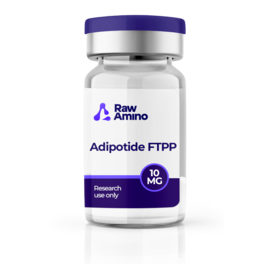
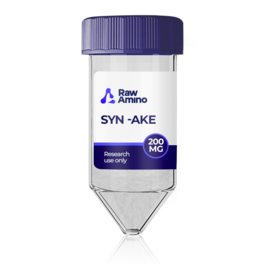
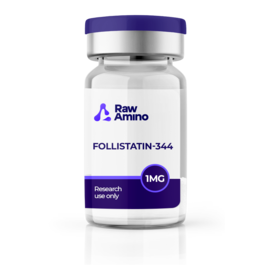
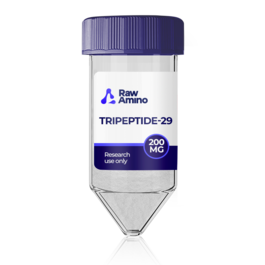
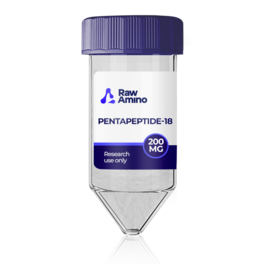
Reviews
There are no reviews yet.